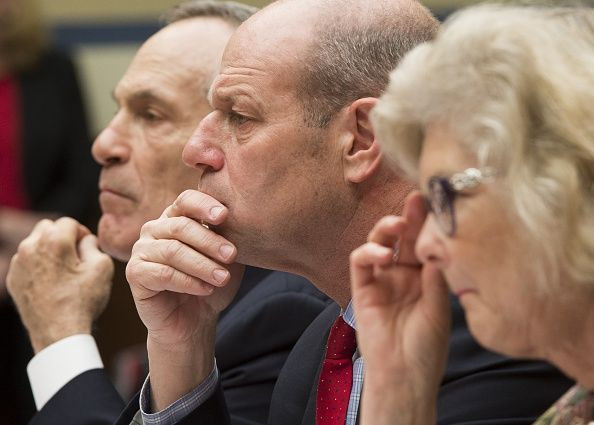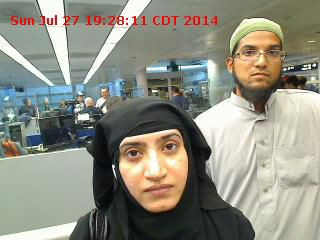US Has Revoked 9,500 Visas Over Threat Of Terrorism Since 2001: Report

The U.S. government has revoked more than 122,000 visas since 2001, Michele Thoren Bond, assistant secretary for the Bureau of Consular Affairs, revealed Thursday, as CBS News reported. Of those visas, some 9,500 were revoked because of the threat of terrorism, she said.
When pressed about the whereabouts of the thousands of foreigners in the country who had their visas revoked, Bond said she did not know, Fox News reported. Bond acknowledged that security reviews do not stop when a visa is issued to someone and that the U.S. continues to match new threat information with the records of visa waivers, revoking the visas if necessary.
In the wake of a Dec. 2 mass shooting in San Bernardino, California, Bond spoke Thursday to members of the House Oversight and Government Reform Committee, which was examining safeguards to keep extremists from manipulating the legal paths put in place for those traveling to the United States.
The Department of Homeland Security and State Department are reviewing the process used for vetting visa applicants, and are specifically reviewing policies regarding whether authorities at U.S. Citizenship and Immigration Services can review applicants' social media posts as part of the process when evaluating applications for certain types of visas, Fox News reported.

One of the shooters in the San Bernardino massacre, Tashfeen Malik, came to the U.S. last year on a fiancée visa. Although the FBI believed she was already radicalized, Malik somehow slipped through the rigorous screening process. She had been interviewed at the U.S. Embassy in Pakistan and reportedly vetted by five different government agencies. Malik and her husband, shooter Syed Farook, had communicated privately online about jihad and martyrdom prior to their marriage, FBI Director James Comey has said. But there was no evidence the couple was part of a terror cell, authorities said.
Lawmakers grilled officials Thursday on why public social media postings wouldn’t be routinely examined during the vetting process for those attempting to enter the U.S.
“If half the employers are doing it in the United States of America, if colleges are doing it for students, why wouldn't Homeland Security do it?" asked U.S. Rep. Stephen Lynch, D-Mass., Fox News reported. "We don't even look at their public stuff, that's what kills me."
© Copyright IBTimes 2024. All rights reserved.






















